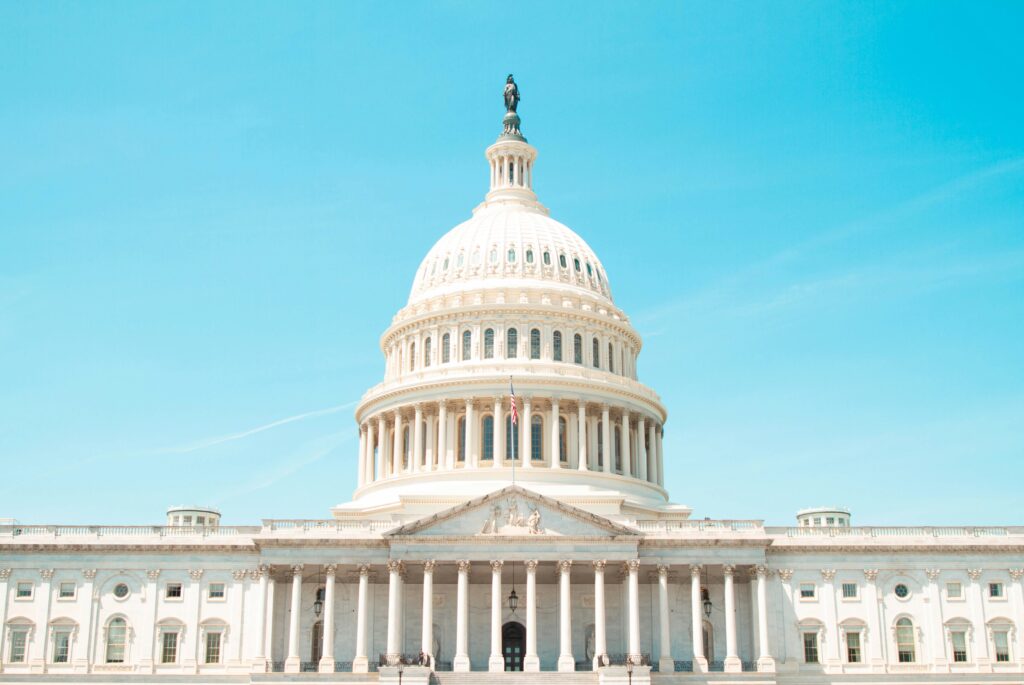(Oregon Right to Life) — Last week, the Biden administration took the opportunity to attack state laws protecting the unborn in an official White House proclamation for Women’s Health Week.
Pro-life laws, according to the official statement, are “dangerous” and “put women’s health and lives at risk.” The Biden administration asserts that abortion is a “personal and private health care” choice that ought to “be left to a woman and her doctor.”
The statement is nothing new. The Biden administration is more favorable to legal abortion than any other administration in U.S. history, and the arguments used are fairly predictable.
Still, the proclamation provides an excellent opportunity to critically examine these common abortion-related claims.
Let’s get started!
Argument #1: “The threat to women’s reproductive health is greater today than at any time in generations.”
This sounds very ominous, but let’s look at what it really means.
Thanks to the U.S. Supreme Court’s landmark decision in 2022 overturning Roe v. Wade, Americans now have the freedom, through our elected representatives, to secure protections for the unborn. So, the Biden administration is sort of correct: this is the first time in generations that pro-life advocates have been able to effectively challenge and limit abortion. The pro-life movement is really just getting started!
But notice how the Biden administration frames the discussion.
The White House’s statement assumes that abortion belongs in the category of “women’s reproductive health,” but it doesn’t… not if we understand who the unborn really are. Health care is the treatment of disease or injury. But the unborn are not diseases to be treated or parasites to be removed. Abortion is a procedure that intentionally ends the life of a unique, innocent, growing human being. And that’s just not health care.
Argument #2: “Millions of women live in States with dangerous abortion bans that put women’s health and lives at risk, force them to travel out of State for care, and threaten doctors with jail time.”
It’s very true that millions of women now live in states where the unborn are protected. In places like Texas, Idaho, and North Dakota, laws now protect innocent unborn lives in almost all cases, with very few exceptions. That means that anyone who wants to obtain an abortion must go elsewhere, and anyone who performs an abortion will face legal consequences.
But aren’t these laws “dangerous,” and don’t they “put women’s health and lives at risk?”
Not so fast.
- First, pro-life laws don’t jeopardize women’s lives or health. Every state has exceptions for the life and health of the mother because procedures intended to save the life of a pregnant mother (in cases like ectopic pregnancy) are fundamentally distinct from explicitly intending to end the life of an unborn human being.
- Secondly, abortion itself is dangerous, with possible complications including hemorrhaging, infertility, and even death. The CDC estimates that over 500 women have died from abortion-related causes between 1979 and 2020 – and due to gaps in reporting, that’s likely a huge underestimate.
- Finally, let’s notice the assumption that the Biden administration makes. By arguing that laws to protect unborn lives are “dangerous,” the White House completely overlooks how obviously dangerous abortion is to the unborn. Pro-life apologist Scott Klusendorf has aptly pointed out that arguments like these make the fundamental assumption that the unborn are not human beings, but that’s not true: the unborn are whole and unique human beings from the moment of fertilization, and that’s a scientific fact.
Argument #3: “We are seeing threats to a broad range of reproductive health care, from contraception to fertility services, undermining women’s ability to make decisions about their own futures and families.”
No states prohibit contraception, but some have attempted to redirect public funds from financing certain types of birth control. Why? Some forms of “contraception,” like Plan B, are actually “abortifacients.” That means that instead of preventing a pregnancy, they actually end the life of an unborn human being who has already been conceived. Once the sperm and egg have united, a new human life begins. Many pro-life advocates (including Oregon Right to Life), oppose any drug, device, or procedure that destroys the new human life.
What about fertility services? Earlier this year, the Alabama Supreme Court ruled that embryos created through In Vitro Fertilization (IVF) and stored in cryogenic freezers were indeed children under state law. Some worried this would shut down IVF in the state, but the Alabama legislature swiftly moved to protect the practice. No states ban IVF, and Republican politicians broadly defend it.
It doesn’t seem that the Biden administration’s fears about fertility treatment access are warranted, but pro-life advocates should be aware that the practice tragically involves the devaluing and destruction of innocent human life. You can read more about IVF here.
Argument #4: “These are the most personal and private health care decisions that a person can make and should be left to a woman and her doctor, not to politicians.”
This is another argument that relies on the incorrect assumption that the unborn aren’t human beings worthy of protection. Would we just shrug our shoulders and say that politicians shouldn’t concern themselves with the neglect, abuse, or abandonment of toddlers? Would we say that it’s just a family issue that should be left up to parents?
Of course not!
If the unborn are human (they are), and society has a role in protecting humans (it does), then our elected officials should absolutely make laws to protect the most vulnerable among us.
To explore more pro-life resources, check out the links below:
- The Scientific Consensus on When a Human’s Life Begins – National Legal Center for the Medically Dependent and Disabled, Inc.
- Abortion Surveillance — United States, 2021 – U.S. Centers for Disease Control and Prevention
- Immediate Physical Complications of Induced Abortion – The Charlotte Lozier Institute
- “Abortion is Healthcare”: A Misogynistic Non-Argument – Equal Rights Institute
- Abortion Is Not Healthcare – U.S. Conference of Catholic Bishops
- Standing Strong Under Fire: Popular Abortion Arguments and Why They Fail – Scott Klusendorf, YouTube
- Yes, Some Contraceptives Are Abortifacients – National Review
- Pro-Life Leaders Respond To Alabama IVF Ruling – Oregon Right to Life





